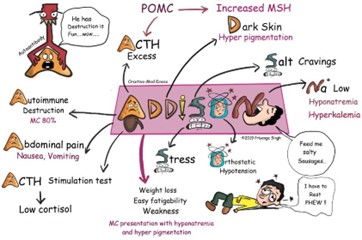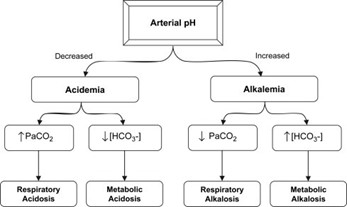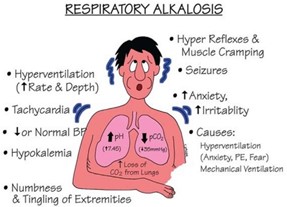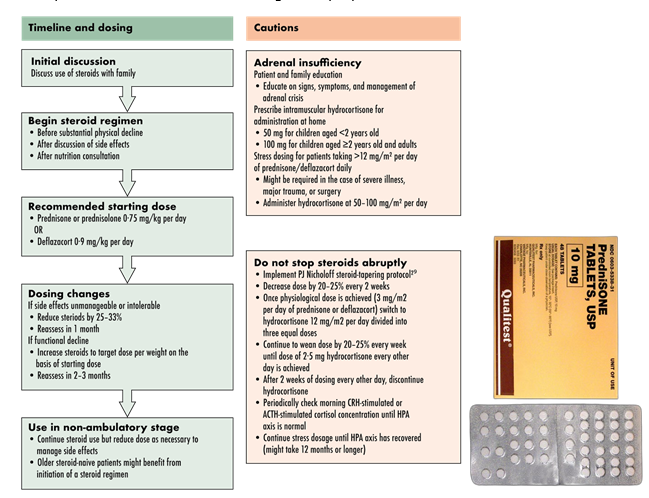A patient is hospitalized with acute adrenal insufficiency. The nurse determines that the patient is responding favorably to treatment on finding:
Decreasing serum sodium
Decreasing blood glucose
Decreasing serum potassium
Increasing urinary output
The Correct Answer is D
One of the hallmarks of adrenal insufficiency is dehydration and decreased urinary output, which can lead to electrolyte imbalances such as hyperkalemia and hyponatremia. As treatment begins to take effect, the patient's fluid and electrolyte balance should improve, leading to an increase in urinary output. Acute adrenal insufficiency, also known as the Addisonian crisis, is a life-threatening condition caused by a sudden decrease in cortisol and aldosterone hormones. Treatment usually involves the administration of intravenous glucocorticoids and mineralocorticoids to replace the deficient hormones.
Decreasing serum sodium (a) and decreasing blood glucose (b) are not signs of improvement but rather indicative of continued adrenal insufficiency. Decreasing serum potassium (c) is also not a sign of improvement as it could indicate that the patient is developing hyperkalemia, which is a potential complication of adrenal crisis.

Nursing Test Bank
Naxlex Comprehensive Predictor Exams
Related Questions
Correct Answer is B
Explanation
Sudden discontinuation of prednisone can result in adrenal insufficiency and can lead to life-threatening complications. The nurse should also instruct the patient to report any symptoms of an infection, such as fever, to the doctor promptly, as prednisone can mask signs of an infection.
Monitoring for mood alterations and daily weight measurement are also important aspects of care, but they are not as crucial as the need to gradually taper off the medication.
Correct Answer is B
Explanation
Based on the given documentation, the nurse suspects that the client has respiratory alkalosis. The client's ABG results show a pH of 7.52, which indicates alkalosis and the PaO2 level is slightly low, suggesting respiratory involvement. Rapid breathing (RR44) and wheezing also support the possibility of respiratory alkalosis.


Whether you are a student looking to ace your exams or a practicing nurse seeking to enhance your expertise , our nursing education contents will empower you with the confidence and competence to make a difference in the lives of patients and become a respected leader in the healthcare field.
Visit Naxlex, invest in your future and unlock endless possibilities with our unparalleled nursing education contents today
Report Wrong Answer on the Current Question
Do you disagree with the answer? If yes, what is your expected answer? Explain.
Kindly be descriptive with the issue you are facing.

